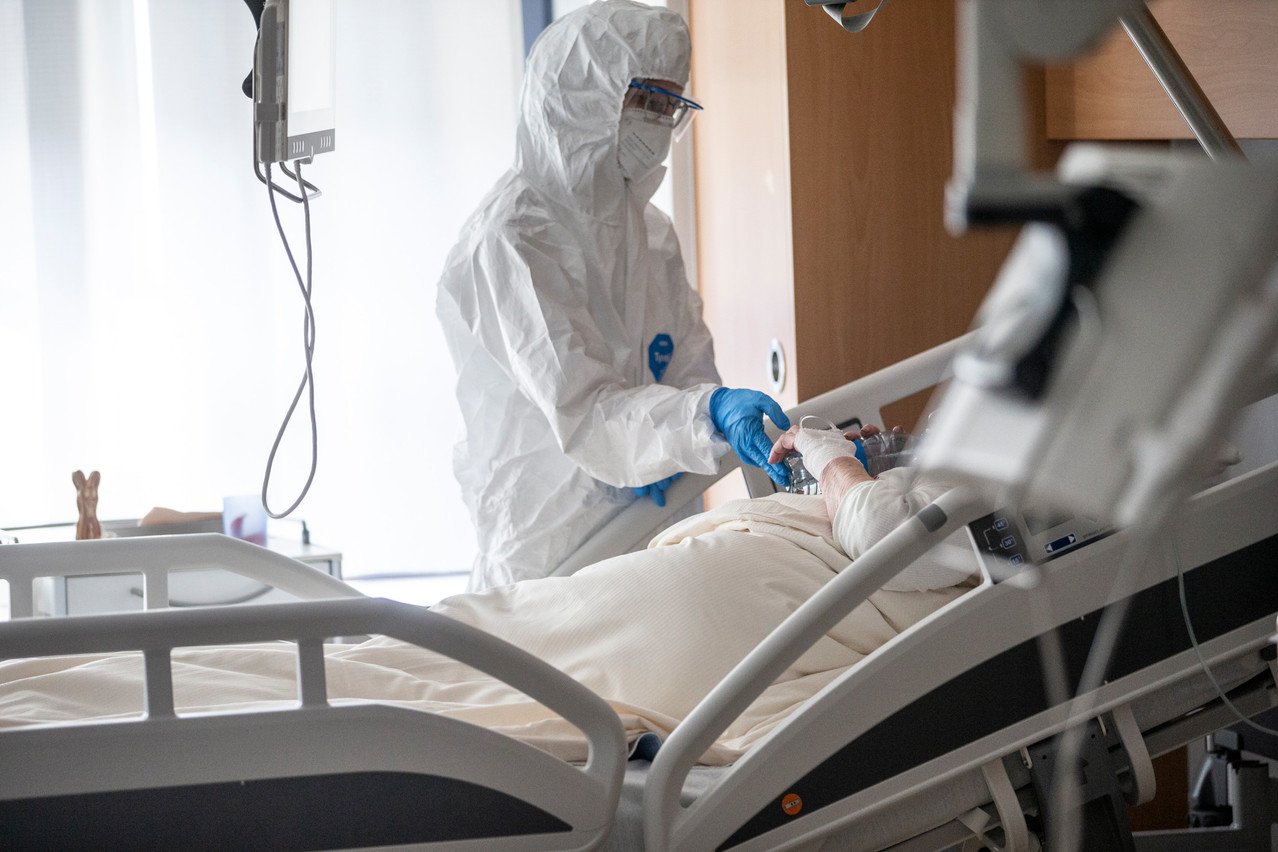“There is an onrush,” said Charles Benoy at the neuro-psychiatric hospital in Ettelbruck (CHNP), which helps the long-covid clinic treat its patients for mental health conditions. Around 100 people are still on a waiting list to , but only a handful have left the programme.
Symptoms range from chronic fatigue syndrome and concentration problems to short-term memory loss, headaches, migraines, brain fog, aches and pains, and depression. “When you’re not healthy physically, you’re also not well psychologically,” Benoy said.
“If you imagine that from one day to the next, you can only do 60% of the things you’re used to doing, you need to adapt psychologically. You need to set priorities, deal with frustration that you cannot do other things. You have to deal with anxieties about your private life, your career, your children… It’s a broad area to work on.”
Experts at the long-covid clinic have identified more than 200 symptoms and often doctors can offer little insight into recovery prospects. Psychologists work with patients on adapting to their new situation in life--developing new routines, managing pain and insomnia--without giving up hope entirely on their condition improving.
“People with chronic illnesses belong to the population with the highest suicide risk,” said Benoy. “People have had an illness over a period of time and don’t know if it will ever get better. It’s a dangerous mix.”
Patients at risk of suicide are immediately referred to the CHNP. “We’ve pledged to see these people are quickly as possible,” Benoy said. At the same time, he estimates that many cases go undetected. “A person who thinks there’s no way out isn’t someone who puts their name on a three-month waiting list.”
Uncertain future
Around 80% of people with a Sars-CoV-2 infection experience symptoms for more than four to five weeks, the psychologist said. One in three develop what is now being referred to as post-covid, in which symptoms persist after 13 to 14 weeks.
After more than three months, chances are they will continue for over a year. “And at the moment, we don’t know if it could be three or four years,” said Benoy. The illness simply hasn’t been around long enough to gather this kind of information.
“With omicron, we don’t really know where we’re headed,” Benoy stated. On the one hand, the variant appears to cause less severe illness. But on the other, it is exactly these less severe cases that are more likely to develop into post-covid cases. Further still, people who are vaccinated appear less likely to be at risk of long or post-covid.
“The pandemic is a state of emergency that has turned our lives upside down,” Benoy said, with people’s general mental health and well-being poorer than before. But the psychologist warned of linking the restrictions to the deterioration in public mental health. “It’s not the measures but the pandemic that weighs on people’s mental state. In countries, like Brazil, where there were practically no measures, people are more poorly psychologically than here. The measures also provide security.”
Still, separating mental health complications caused directly by a coronavirus infection or appearing as a secondary side effect can be difficult, Benoy said. A lack of low-threshold support--and the fact that the CNS doesn’t reimburse private practice treatment--aren’t helping.
Psychiatrist waiting lists are three or four months long. “The result is often that in those three or four months, there’s a strong deterioration and, in the end, people need to be hospitalised who could have been caught much earlier. That’s not covid-specific.”
Post-traumatic stress
But it’s not only patients suffering from long or post-covid who need help to overcome the trauma of infection.
Vanessa Grandjean, chief psychologist at the Centre Hospitalier de Luxembourg (CHL), at the start of the pandemic in March 2020 devised a treatment plan for patients hospitalised at the clinic as well as their families.
“At the beginning, we couldn’t even enter the wards,” she said of the isolation of patients during the first wave of infections. “Families couldn’t enter and we had patients dying on their own. We tried creating a link.”
For those who survived, the experience in many cases caused post-traumatic stress. “They are patients who continuously relive what happened. They experienced their hospitalisation and their illness very intensely. The brain couldn’t properly digest and process this information,” Grandjean said. “What’s complicated currently is that they are constantly triggered because you hear the word ‘covid’ every day.”
The hospital offers so-called EMDR therapy, which aims at allowing patients to redigest the information their brains processed poorly previously. Staff at the hospital, too, are offered this kind of therapy to deal with the trauma of the last two years.
“Care staff are tired,” Grandjean said. “When they recharged a bit psychologically, it tipped over again.”
Resources running out
Grandjean has seen anxiety and depression in patients, questions over why they ended up in hospital or intensive care. Moving past the experience is difficult for them, leaving them more vulnerable, often combined with lingering symptoms.
“We have patients who, before, would have been able to manage, but who are now completely overwhelmed because they are tired and don’t have the resources anymore.”
The snowball effect of the pandemic, its impact on the economy, jobs, price inflation, household purchasing power and more, exacerbates the problem.
Grandjean, too, bemoaned a lack of available and affordable treatment options. “People don’t know how to access help,” she said. “People who already aren’t well will be even worse because they don’t have the financial means to get help,” she said of the CNS not reimbursing an array of mental health support.
As the medical community keeps learning about covid-19, hospitals are running low on resources to take care of patients as well as their own staff. “The problem is that we still don’t have answers. We cannot guarantee that they will get better, that we will be able to heal them,” Grandjean said. “We do the best with what we have.”
